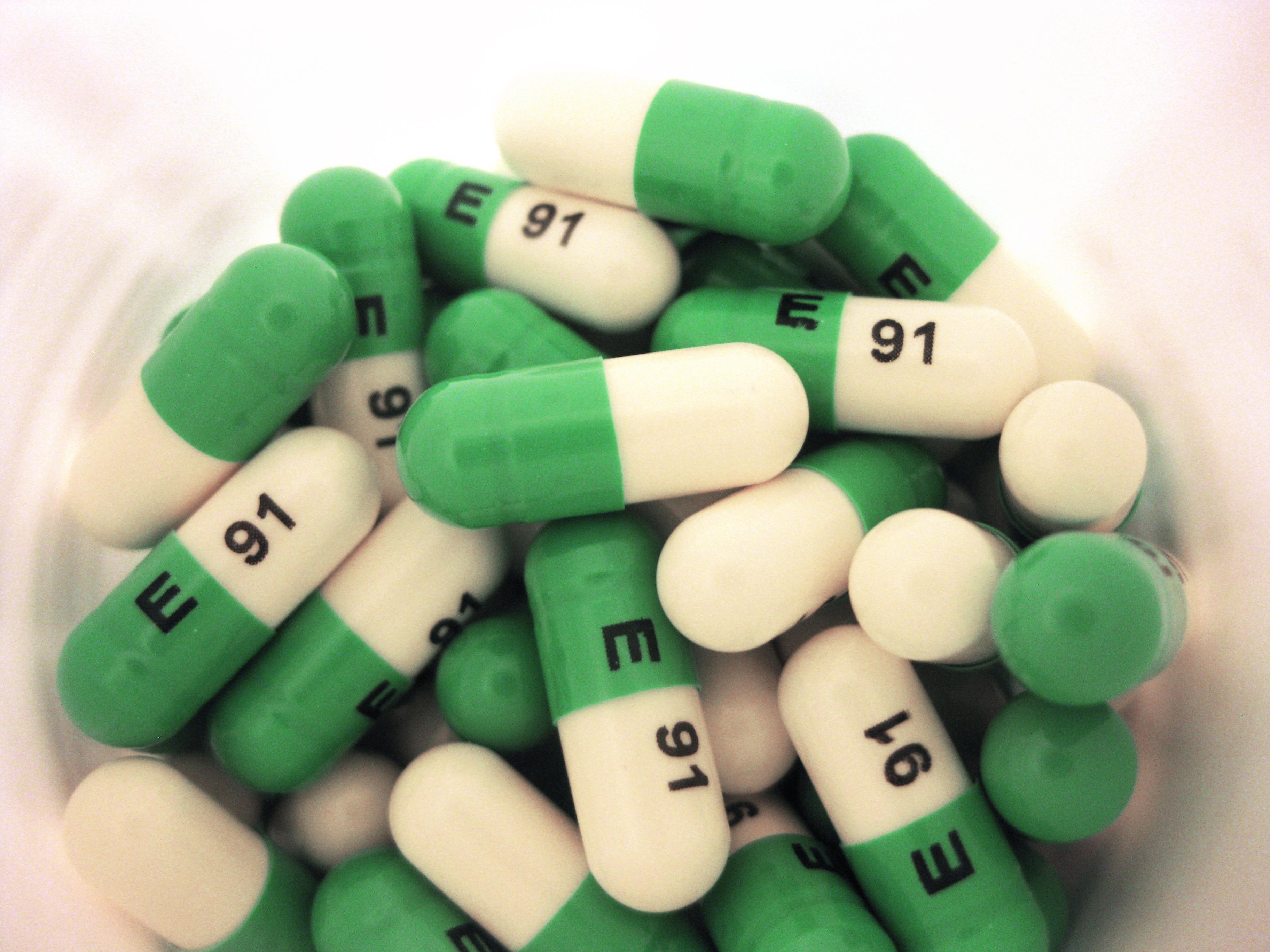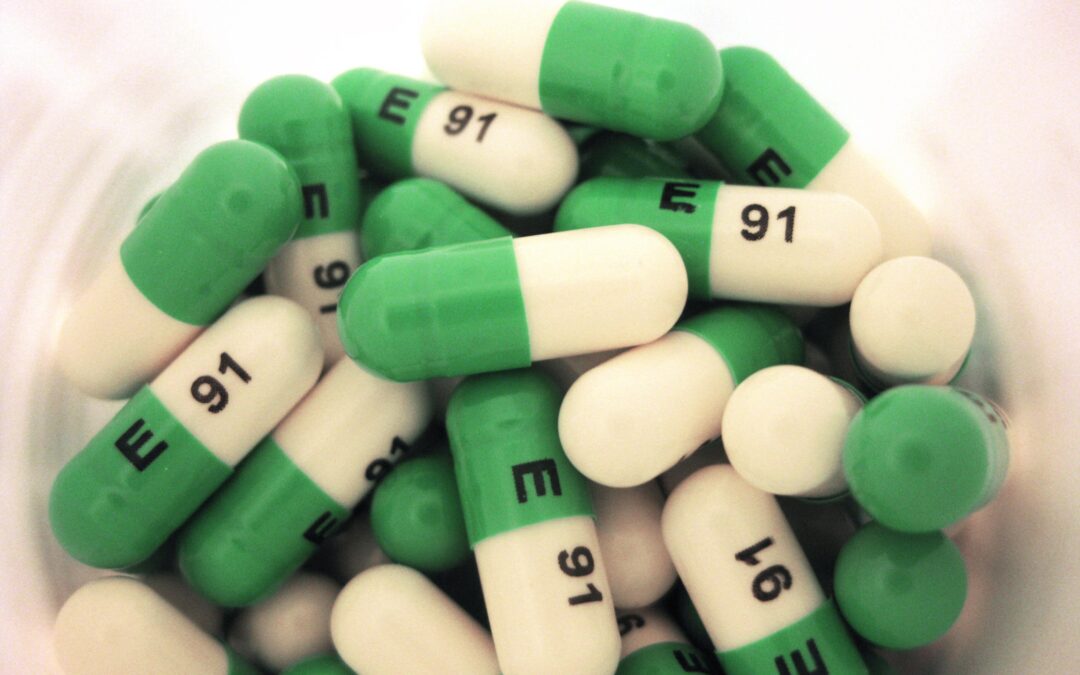 “I was born with an imbalance in my brain,” my patient explains to me, “The medication corrects it—Since I started taking Cipralex, I wake up feeling like a normal person again.”
“I was born with an imbalance in my brain,” my patient explains to me, “The medication corrects it—Since I started taking Cipralex, I wake up feeling like a normal person again.”
It is estimated that about 10% of adults in North America are taking a medication to help them cope with anxiety and depression. Many people swear by these substances, others claim that they worsen depression, cause uncomfortable side effects and fail to treat the root cause of symptoms, numbing us to the experience and cause of our emotional pain and physical symptoms. The reality is, however, that prescriptions for these medications is increasing.
What are anti-depressants?
Most anti-depressant medication falls into the pharmaceutical category of SSRI, or Selective-Serotonin Re-uptake Inhibitors, like Prozac or Cipralex. These medications prevent the body from mopping up the “happy hormone”, serotonin, in the brain, making its feel-good effects last longer. The result is thought to be more serotonin in the brain and, therefore, increased feelings of happiness and euphoria. Other drugs work on preventing the re-uptake of other neurotransmitters, brain chemicals dopamine and norepinephrine, which also cause feelings of happiness, pleasure and reward, and give us energy.
The Monoamine Theory of Depression:
The leading theory of depression for decades, the Monoamine Theory, states that in people who suffer from depression, there is an imbalance in serotonin production and signalling in the brain—a “serotonin deficiency”—which SSRI medication corrects. Because this is how anti-depressant medication works, this has taken over as the prevailing theory of depression. However, there has never been a published study that proves that people who suffer from depression or anxiety have issues with brain serotonin production or metabolism. It almost seems that pharmaceutical companies have “reasoned backwards” creating a theory in order to support anti-depressant use.
As patients, we want to believe that the medicine our doctors give us is just that, medicine—something that treats the root cause of disease and makes us healthier, rather than covering up our symptoms while the underlying problem continues to worsen. However, most medications don’t work that way. While Advil may alleviate a headache, we intuitively know that our headache was not caused by an Advil deficiency. Likewise, alcohol may calm down those plagued by social anxiety, but we know that alcohol isn’t a cure for social anxiety; it is a drug that can temporarily help symptoms and relying on it will only cause further health problems down the line. We know that for most health conditions, while a drug may help temporarily, something else is going on inside our bodies that warrants attention.
While the percentage of people who are medicated for depression has increased in recent years, the rate of disability from mental health conditions is steadily on the rise. This is perplexing, especially if these drugs are doing what they’re “supposed to”, which is curing a brain chemical imbalance. Shouldn’t medicating patients with depression result in a cure, or at least a declining rate of disability for mental health concerns? Clearly, something else is going on.
Harnessing the Placebo Effect:
Many patients report the fact that anti-depressant medications saved their lives, radically turning around serious and debilitating symptoms. I’ve heard quite a few stories from individuals who couldn’t get out of bed until they found the right SSRI for their body.
The data shows that SSRI medication has the ability to reduce depressive symptoms by 30% in individuals, a modest reduction at best, but still significant. But, do these medications work as well as the studies claim? A glance at the entire body of research casts doubt on the efficacy of anti-depressant medication:
Firstly, there is a large body of unpublished negative studies. This means that studies that show there is no difference in anti-depressant medication and placebo is left out of the body of literature, favouring a bias for positive publications, publications that find anti-depressants work. Medical research draws conclusions by producing studies over and over again. When the results of several studies are combined, doctors and researchers are able to draw conclusions about whether a medication works or not. When only positive research is published, without negative research to balance it out, it casts medications in a favourable light that they may not necessarily deserve. This is an unfortunate phenomenon in medical science as a whole, and often skews the evidence in favour of drugs that may not be as effective as we hope.
Secondly, the gold standard for evidence, the Randomized Control Trial (RCT) may have design flaws due to the nature of the medications being tested. In RCTs, patients are randomized into two groups. One group is given placebo and the other the active drug that is being tested. The subjects and the people evaluating them are both blinded—neither knows which group is given the drug and which is given the placebo. This reduces the possibility of bias in reporting and observing the effects of the medication. The idea is because an inert pill, or “placebo” may be able to exert the effects of a drug, providing about 30% benefit, according to some sources. However, when patients who are in the active group experience side effects of the medication: gastric symptoms, nausea, headaches, altered sleep and appetite, they quickly become alert to the that fact that they are in the medication group, leaving room for the placebo effect to occur. This is termed the “Active Placebo Effect”. When SSRIs are compared with active placebos—placebos that don’t act as medicine but produce the same side effects—we found their effects rapidly diminished, perhaps because the placebo effect was not taking effect anymore.
What about the people who SSRIs help?
To cast doubt on the efficacy of anti-depressants does not in any way invalidate those who have felt the medications helped them. Every body is different and I believe that it is not for us to say how someone should or shouldn’t be reacting to a medication or therapy. The mysteries of our bodies are vast and there is only so much that we’re aware of in the world of medicine and health. Furthermore, the placebo effect, while often being used to dismiss therapies (“oh, it’s probably just a placebo effect”) should really be viewed as an amazing miracle of medicine and evidence of how powerful our bodies and minds are. The placebo effect shows us that, according to our beliefs, we have the power to heal ourselves. We believe that we’re getting treatment, we believe the treatment will help us, and the very nature of those beliefs heals our physical bodies.
This does not mean that the people who were suffering before taking the medication were “faking it” or should have been able to just snap out of it—that’s not how the placebo effect works. The placebo effect is based on changing our beliefs, which, as you may know, is not something we can simply will ourselves to do. However, the fact that our beliefs hold this kind of healing power, I find, frankly, is amazing. The placebo effect shows us evidence of an almost magical ability of the mind-body connection to heal ourselves, without side effects, and I believe it is something that we should harness and celebrate.
What’s the problem, then?
While anti-depressants may be harnessing the placebo effect to help individuals heal, there are downsides to them as well.
Firstly, SSRI medications have a long list of side effects, from weight gain and fatigue to sexual dysfunction and vitamin deficiencies, being on these medications over the long-term can be unpleasant for some and seriously affect quality of life for others.
Secondly, anti-depressant medications are notoriously difficult to get off of. I have assisted many patients in getting off their medication, with the help of their medical team, but it’s never easy and must always be done slowly and responsibly. Getting off medication involves a slow wean over months with support of natural therapies, psychotherapy and lifestyle changes. Because these drugs force the brain to adapt, causing a very real chemical imbalance, oftentimes the withdrawal effects are so intolerable that patients are not able to come off.
Most patients who decide to try anti-depressant medications are not aware how difficult it will be to stop taking the medication, if they should eventually choose to do so. This is unfortunate, as I believe that full informed consent should be applied to patients so that they may make appropriate decisions about their health—patients should be made aware that they are expected to stay on the medication for life and that weaning will be very difficult and, in some cases, not possible.
Finally, there is a growing body of evidence showing that patients who do not receive medication, but other forms of help such as diet and lifestyle changes, psychotherapy and stress management, do better, have higher rates of remission and less relapse than those who are medicated. As we see with the studies that show that more medication is correlated with more disability from mental health concerns, it is possible that medicating depression is only worsening the problem for most people.
So, what causes anxiety and depression?
Scientists and clinicians are not sure what the cause of depression is. However, the Cytokine Theory of Depression and the Gut-Brain Connection are two areas that are gaining increasing interest from researchers. These theories state that depression may be a cause of inflammation in the body that affects the brain, and that imbalances in gut health, especially with gut bacteria may offset mental health, respectively. Naturopathic doctors also notice a clinical correlation between burnout or “adrenal fatigue” and mental health symptoms.
Healing the mind and body, however, starts with creating a therapeutic relationship with a professional that you trust. After that, I find that healing the gut, correcting inflammation and nutrient deficiencies while addressing harmful core beliefs and stress can have wonderful results for healing depression and anxiety.
Depression is a symptom:
Psychiatry would have us believe that depression and anxiety are conditions that we are born with. Conventional medicine states that perhaps we have a familiar tendency to develop these conditions, perhaps we’ve had them since childhood, but, and in this case it is clear, depression and anxiety are not things that you heal from; they are things you simply manage.
I disagree. I don’t believe that depression and anxiety stand on their own as diseases, but symptoms of a deeper imbalance. Like any symptom, I believe mental health concerns are trying to tell us something. Our bodies have no other way of communicating with us other than through the symptoms they produce: lack of motivation, sore muscles, bloating and diarrhea, headache, joint pain, brain fog, fatigue and so on. As naturopathic doctors, we are trained to listen, not just to our patients, but the messages their bodies are signalling to us through symptoms.
This means that, when I start seeing a patient with depression, whether they are on medication or not, we develop a full work-up, asking in-depth questions about sleep, diet, exercise, digestion, mental status, mood, energy, reproductive health and so on. I connect these symptoms together to find out what is going on beyond what may be immediately visible.
Depression and anxiety often have a root cause. The cause may be stress, childhood trauma, leaky gut, adrenal fatigue, inflammation or even medication and drug use itself. Through uncovering the root of the issue, we are able to treat it, helping the body restore itself to balance and health.
My philosophy of healing is that, sometimes, illness can be a gift, especially if it encourages us to delve deep into our lives and values and make the necessary changes for healing ourselves. Sometimes depression and mental health challenges can be the beginning of a grand and fulfilling journey where we learn to connect more deeply to our bodies, discover our life purpose and a greater sense of happiness and life satisfaction.







